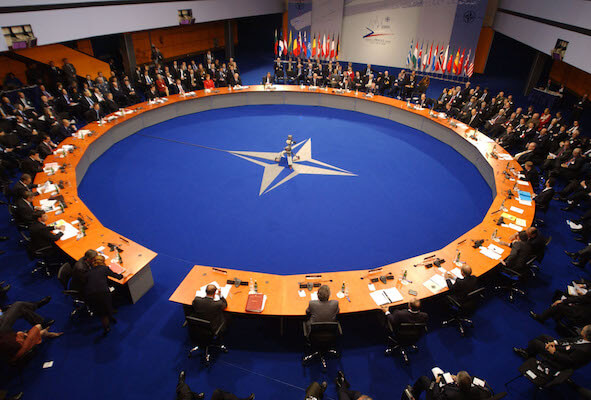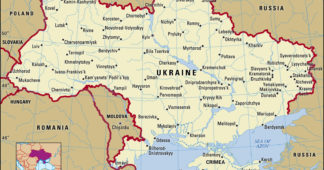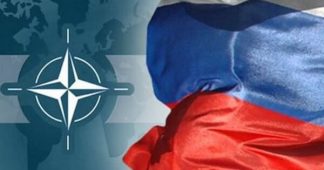German Peace Council (Friedensratschlag)
The text below is the final statement of the German Federal Peace Council from the 29th Nationwide Peace Council on Dec. 10-11, 2022, in Kassel, Germany. It is important to U.S. antiwar activists, as the debate within the movement in Germany mirrors what is taking place here in the United States. Translation: John Catalinotto.
The old U.S.-dominated unipolar world order is coming to an end. The United States and its allies are using all means to try to stop this development. At the risk of a major war, they are intensifying their proxy war in Ukraine against Russia and at the same time igniting military activities directed against China in the Pacific and provocations around Taiwan. The economic war, expanded since February, is exacerbating hunger and social inequality worldwide and undermining the fight against climate change.
From the 1999 Zeitenwende to the war in Ukraine
The often cited “Zeitenwende” (historic turning point) began, not with the Russian invasion of Ukraine, but in March 1999. NATO’s invasion of Yugoslavia then was the overture to further Western-led wars and interventions, all of which violated international law. At the same time, NATO began to advance toward Russia by absorbing countries that had been members of the Warsaw Pact; this broke binding promises to Moscow that the military alliance would be extended “not an inch to the east.”
[The Zeitenwende] was the beginning of the end of the attempt at a European peace order that had been initiated in the early 1990s with the Charter of Paris, among others, and also became part of the Two-plus-Four Treaty [of 1990, settling the borders of Germany]. The agreements combined the right to choose one’s own alliance with the obligation not to strengthen one’s own military position at the expense of third parties but to take into account the security interests of other states.
NATO ruthlessly disregarded this [agreement] and pushed the confrontation ever further with troops and large-scale maneuvers on Russia’s borders and by pledging that Ukraine would join NATO. The Maidan Coup in 2014, the subsequent rearmament and successive NATO integration of Ukraine finally crossed Moscow’s red lines and — in conjunction with the imminent deployment of new U.S. medium-range missiles — sharply increased the threat posed to Russia. Then the U.S. and NATO brusquely rejected negotiations on security guarantees that Russia demanded.
At the same time, Kiev escalated the war in the Donbass. After refusing for seven years to implement the Minsk Agreement [establishing a cease-fire in Ukraine’s civil war], which was binding under international law, the Ukrainian government launched a military offensive against the Donbass republics in mid-February 2022. This entire background cannot be ignored when assessing Russia’s invasion, which violates international law and shows where negotiations to end the war in Ukraine must begin.
The United States and its allies, on the other hand, torpedoed the promising negotiations in Istanbul at the end of March and, even after nine months of war, are urging Kiev to refuse to show any serious willingness to negotiate under any circumstances. They see a prolonged war as an opportunity to decisively weaken their rival [Russia] and, in conjunction with an unprecedented economic war, to “ruin” it. (German Foreign Minister Annalena Baerbock)
By increasingly feeding the war with heavier weapons, military advisors, trainers, enemy reconnaissance, intelligence information and mercenaries, they helped Ukrainian troops achieve successes, albeit with heavy losses. The Russian army responded with massive attacks on Ukraine’s infrastructure.
As the impact of Ukrainian defensive missiles in Poland showed, the war can escalate into a larger one at any time. With each passing day, not only the risk of a state using nuclear weapons grows, but also that of a nuclear catastrophe through attacks on nuclear power plants in the war zone.
We demand that the German government and the EU stop fueling the war with arms deliveries and propaganda and instead make serious efforts to achieve a cease-fire and negotiations — without preconditions.
The Social Democratic-Green-Free Democrat (Ampel) government is driving a course that leads straight into the abyss. Together with its partners in the EU, it is ensuring supply bottlenecks and price explosions for oil and gas, causing increases in living costs and a foreseeable crash of the economy, by striving to achieve as complete an economic decoupling from Russia as possible.
At the same time, the government plans to further expand Germany’s role as a major power, with gigantic armaments projects, and to make the German armed forces the strongest conventional military power in Europe. With the planned increase in military spending to 2% of gross domestic product — it threatens to double to 100 billion euros ($105 billion) in just a few years — funds the country urgently needs to overcome pressing problems in the areas of social welfare, health, the environment and climate.
We demand that the German government abandon this antisocial course, which endangers peace, and disarm!
We oppose weapons systems like hypersonic weapons, which make the option of a USA/NATO decisive [nuclear] first strike possible against Russia — like the Pershing II did in the 1980s against the Soviet Union.
The German government must refuse to deploy U.S. hypersonic missiles and other intermediate-range missiles. It must join the United Nations’ nuclear weapons-ban treaty and cancel the treaties on the stationing of troops!
The German government now wants to join the U.S. efforts to encircle China militarily, which began more than a decade ago, by deploying the German Armed Forces (Bundeswehr). An arms race of the West against the China-Russia partnership is an aberration that may lead to the annihilation of humanity.
The inevitable contradictions must be resolved at the negotiating table. The time of climate catastrophe, global hunger and simultaneous increase in world population urgently calls for cooperation instead of ever more confrontation.
We therefore advocate a peace order consisting of equal common security, agreements and structures that take into account the security interests of each state. Instead of a NATO geared to high armament and deterrence, we need a United Nations and an Organization for Security and Co-operation in Europe that — freed from Western dominance — become more capable of action.
We must also work to ensure that the new multipolar world order will be committed to the principles of social justice, international solidarity, democracy and environmental sustainability.
We remind our readers that publication of articles on our site does not mean that we agree with what is written. Our policy is to publish anything which we consider of interest, so as to assist our readers in forming their opinions. Sometimes we even publish articles with which we totally disagree, since we believe it is important for our readers to be informed on as wide a spectrum of views as possible.











